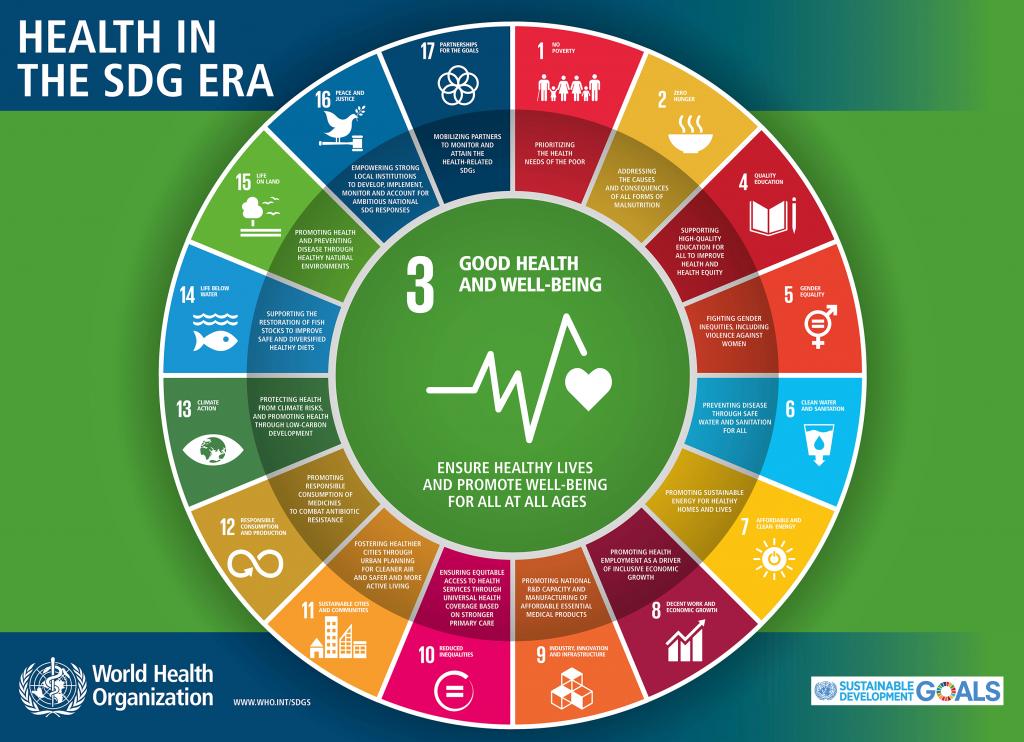The Sustainable Development Goals (SDGs), adopted in September 2015, provide an ambitious, inclusive, and transformative framework for development. Within the SDGs, health plays an important role by promoting physical and mental health and well-being, extending life expectancy for all, and achieving universal health coverage and access to quality health care. To ensure that none is left behind, stakeholders including member states, academic institutions and think tanks should come together to monitor and share best practices.
During the 2016 High Level Political Forum, only 22 countries delivered a voluntary review, while in July 2017 43 member states presented a report that encompassed goal 3 on health.
The national appropriation of Agenda 2030 is gradual. Chile has established an institutional framework through the creation of the National Council for the Implementation of the Sustainable Development Agenda 2030, in which four Ministries are represented: the Ministry of Foreign Affairs, the Ministry of Economy, the Ministry of Social Development, and the Ministry of Environment. The Ministry of Foreign Affairs chairs the Council and the Ministry of Social Development is in charge of the technical secretariat. In July 2017, Chile delivered a voluntary report at the High Level Political Forum, which served as an initial diagnosis of the Sustainable Development Goals in the country. The elaboration of the report was developed by different stakeholders, including actors of the public and private sector and civil society, with the continuous support of United Nations System.
This process revealed that the indivisibility of the goals poses a big implementation challenge for countries, but creates also opportunities for intersectoral work in the public sector, with multiple stakeholders. Working with multiple actors to identify context-relevant solutions contributes to the development of more comprehensive and effective actions. It is also important to use multiple communication mechanisms for the inclusion of different population groups.
As different stakeholders work to accelerate the achievement of the health-related Goals through the creation, sharing, and brokering of knowledge, experts, professionals and defenders of equitable and sustainable Public Health gathered from July 25th-27th in Santiago, Chile, to identify how political, social, commercial and environmental determinants of health should be articulated in pursuit of the SDGs.
The conference addressed not only successful experiences but also lessons learned in relation to sectoral coordination and multistakeholder approaches.
At the meeting the Declaration of Santiago was signed by the Government of Chile, PAHO/WHO, the THINK_SDG initiative, the Global Health Centre at the Graduate Institute of Geneva, the International Development Research Centre (IDRC) and the Latin American Alliance of Global Health (ALASAG).
The Declaration calls for support of the highest levels of Government; the creation of political processes that ensure implementation and accountability; sustainable financing; the inclusion of the largest number and variety of stakeholders and interest groups; and the support of local governments, especially in highly decentralised countries.
These principles are based on the belief that health is a political choice and a public asset. The SDGs have designated health and well-being as a priority for the signatory States. In order to address this dynamic and complex political challenge, the implementation of the SDGs should focus on equitable achievements on the basis of the right to health, breaking with the earlier approach based on the mere attainment of quantitative targets.
In order to implement the vision expressed in the Santiago Declaration, it is necessary to support all stakeholders in gaining and maintaining political support for the implementation of the health-related SDGs, and to recognise the complex interactions between health determinants, promoters and risks, as well as their potential implications within the SDG framework. All stakeholders should further promote sustainable commitment from all levels of civil society, as well as equip those who implement actions with appropriate capacities to integrate sectoral responses, ensure inclusion, transparency and accountability. All of this is necessary to attract and maintain sustainable financing.
Finally, it is important to remember that the SDGs provide us with a unique framework and opportunity for action, but it is our responsibility to innovate and supply the necessary resources to turning them into reality.
Further information
- Conference materials
- Declaration of Santiago on the Sustainable Development Goals: "Adding support to the implementation of Sustainable Development Goals”
Written by Pablo Vega Rojas, Chief of Cabinet, National Health Fund (FONASA), Chile


